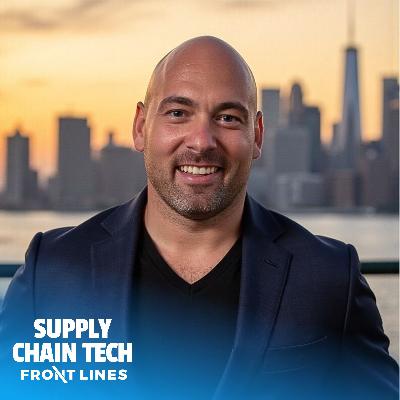How MishiPay scaled from $10M to $250M in transactions by abandoning their best product | Mustafa Khanwala
Description
MishiPay has scaled from processing $10 million to over $250 million in annual transactions by abandoning product purity for market pragmatism. What started as a mobile-first scan-and-go solution evolved into a comprehensive checkout platform spanning self-checkout kiosks, RFID systems, mobile POS, and traditional cash registers—now deployed across 2,000+ stores in North America, Europe, the Middle East, and Australia. In this episode of Category Visionaries, we sat down with Mustafa Khanwala, CEO and Founder of MishiPay, to dissect why the "inferior" product often wins in retail tech, how trust-building mechanics differ fundamentally across geographies, and what it actually takes to maintain startup agility at enterprise scale.
Topics Discussed:
- The seven-year journey from consumer mobile app to B2B checkout infrastructure
- Why MishiPay nearly failed by over-indexing on superior UX instead of adoption curves
- The 2022 pivot that unlocked triple-digit revenue growth with flat headcount
- How checkout solution requirements vary by customer visit frequency (weekly grocery vs. annual travel retail)
- Trust-building in enterprise sales: face-to-face requirements in Middle Eastern markets vs. video-first Western sales cycles
- Delivering two-week go-live timelines and 10-minute UI changes while maintaining 99.9999% uptime
- AI integration strategy: internal efficiency first, then customer-facing analytics and autonomous POS management
GTM Lessons For B2B Founders:
- Adoption friction kills better products: Mustafa spent years refusing to build self-checkout because scan-and-go was objectively superior UX. The company nearly died defending this position. "Should we have started on some of our other products in 2019 instead of 2022? Probably." The lesson isn't about building inferior products—it's about understanding that customers evaluate "better" through implementation risk, training overhead, and behavior change required. B2B founders must map the gap between current state and ideal state, then build the bridge products that de-risk each transition step, even if those bridges feel like compromises.
- Customer frequency determines viable solution complexity: Scan-and-go requires significant user education investment that only generates ROI with weekly-plus usage. In travel retail where 70-80% of customers visit 1-2x annually, that education cost never pays back. MishiPay now matches solution types to visit patterns: scan-and-go for high-frequency grocery, staff-assisted mobile POS for low-frequency travel retail, RFID self-checkout for mid-frequency fashion. B2B founders should calculate the learning curve payback period against actual usage frequency—if users won't encounter your product enough times to justify the learning investment, you need a different entry point regardless of how good the end-state experience is.
- Enterprise stability with startup agility is a wedge, not a platitude: Every vendor claims this. MishiPay operationalizes it through specific SLAs: two-week store go-lives, 10-minute button changes, two-day promotion additions, two-week payment method integration—all while maintaining 99.9999% uptime that enterprise POS demands. This isn't about "moving fast," it's about architecture decisions that enable rapid customization without stability trade-offs (mobile-first, cloud-native, API-driven). B2B founders should define their agility claims in measurable timelines and uptime guarantees, not adjectives. If you can't operationalize "flexibility" into specific hours or days for changes, it's not a differentiator.
- Geographic trust-building fundamentally differs in mechanism, not degree: Western enterprise sales: product merit → pilot → relationship building → expansion. Middle Eastern enterprise sales: relationship building → pilot opportunity → product merit demonstration → deal. The difference isn't relationship importance (both require it), but sequencing. Mustafa noted Middle Eastern business culture evolved from pearl diving where "their whole job was to be able to look at someone in the eyes and decide if that person was going to scam them." Face-to-face happens pre-deal in Middle East, post-deal in the West. B2B founders expanding globally must rebuild their sales motion sequencing by geography, not just translate materials or add local reps.
- Staff productivity scales by solving the manager's problem, not the user's pain: MishiPay's roadmap progression reveals a pattern: first solve for store staff (checkout experience), then assistant managers (store operations), then store managers (performance analytics), then HQ (multi-store optimization). Each layer up requires data aggregation from the layer below. The AI analytics launch targets store-level decisions (pricing, promotions, inventory) using transaction data from POS—this expands buyer persona from IT/Operations to Finance/Merchandising. B2B founders should map their product expansion as a vertical climb through the org chart, where each new buyer persona requires accumulated data from the previous user tier.
//
Sponsors:
Front Lines — We help B2B tech companies launch, manage, and grow podcasts that drive demand, awareness, and thought leadership. www.FrontLines.io
The Global Talent Co. — We help tech startups find, vet, hire, pay, and retain amazing marketing talent that costs 50-70% less than the US & Europe. www.GlobalTalent.co
//
Don't Miss: New Podcast Series — How I Hire Senior GTM leaders share the tactical hiring frameworks they use to build winning revenue teams. Hosted by Andy Mowat, who scaled 4 unicorns from $10M to $100M+ ARR and launched Whispered to help executives find their next role.
Subscribe here:
https://open.spotify.com/show/53yCHlPfLSMFimtv0riPyM
























